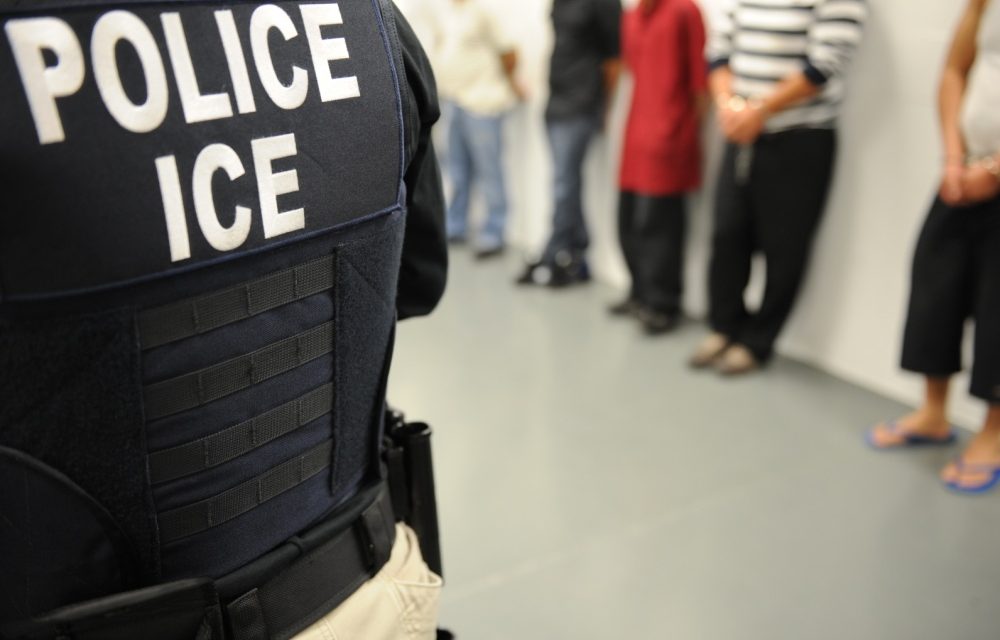The consequences of record-breaking workplace immigration raids are still overwhelming the legal system in southern Mississippi. After the Trump administration repeatedly threatened mass raids last summer, U.S. Immigration and Customs Enforcement (ICE) entered seven Mississippi food processing plants in August, detaining 687 workers.
In the following days, about half of those detained were released on humanitarian grounds. Most were young Guatemalan women with children. They were released with a GPS ankle monitor and a date to appear in immigration court. Over 300 people are still detained at two detention centers in Louisiana, including Lasalle, known for its dangerous conditions and barriers to attorney access.
All 687 immigrants arrested during these raids will face civil immigration violation charges. But nearly 100 people will be pushed through two separate legal proceedings: immigration and criminal court.
Criminal charges include illegal reentry and misuse of a social security number. Prison sentences are likely to be relatively short, but these convictions will create additional consequences for people in their immigration cases. None of the companies employing the workers have been charged.
Legal resources in Mississippi are scarce, making the situation even more difficult for those detained in the raids. The U.S. Federal Public Defender’s Office, with only three attorneys on staff, is representing over half of the criminal cases from the raids, in additional to its normal caseload.
Offices in Gulfport, Mississippi and San Diego, California sent staff to assist with the high volume of cases. A coalition of immigrant-rights organizations mobilized after the raids to support those affected. They are working to provide legal services for people in their immigration and criminal proceedings, bond payments for those still detained, and financial assistance to families struggling to pay bills.
Cliff Johnson, director of the MacArthur Justice Center, which forms part of the coalition, said:
“These are scary days for these folks. When you think about the legal resources needed to defend 680 immigration cases, pursue dozens of bond hearings, defend 100 federal court criminal cases and deal with dozens of administration fines, in a state with fewer people than the city of Dallas and less than a dozen full-time immigration lawyers, you realize the chance of these people receiving the kind of comprehensive representation they deserve is disappointingly low.”
Access to counsel is crucial in both criminal and immigration court. Detained immigrants who seek relief are twice as likely to obtain it if they have a lawyer, and this increases to five times as likely for immigrants outside detention.
Beyond the legal system, the raids have also placed a massive strain on the communities themselves.
Children who returned home from school to empty houses are still traumatized. Church attendance and local business revenue are down as people are afraid to leave their homes. Families struggle to pay rent as many immigrant parents are either still detained in the raids or were fired in the aftermath. The companies have struggled to find new workers for these difficult, low-paying jobs.
Those detained in the Mississippi raids are being forced to navigate our criminal justice and immigration systems without adequate legal services in an apparent effort to increase the consequences for immigration-related violations. This approach to immigration enforcement not only impacts immigrants and their families, but also the communities where they live and work.
FILED UNDER: Immigration and Customs Enforcement


